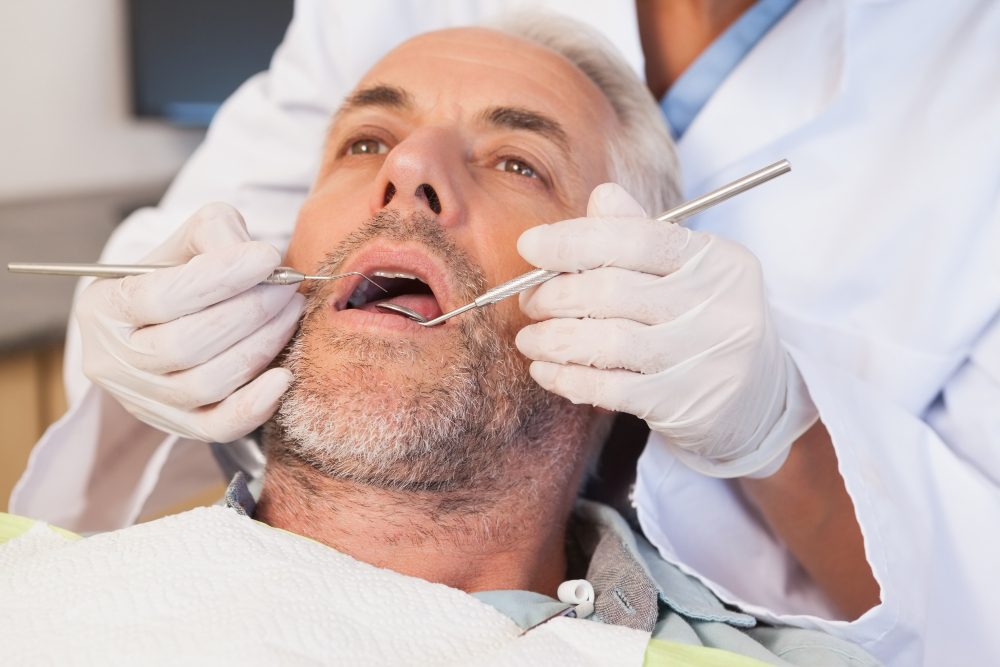Globally, oral tumor symptoms are raising concern. Awareness has become crucial to prevent severe complications from oral tumors. Early detection plays a massive role in fighting these tumors. Timely medical intervention is essential to increasing success rates of oral cancer treatment. A recent study highlights that oral cancer is among the top ten cancers worldwide, emphasizing the need for vigilance.
Understanding oral tumor symptoms is vital. Persistent sores in the mouth, unexplained bleeding, or trouble swallowing are red flags. These signs could indicate serious issues, including signs of mouth cancer. Being alert to these symptoms can lead to early diagnosis, enhancing the effectiveness of treatments. Oral cancer diagnosis could be as simple as a dental checkup and sometimes needs more detailed tests.
Public knowledge and frequent dentist visits can change outcomes significantly. This proactive stance can prevent oral tumors from turning life-threatening.
Understanding Oral Tumor Symptoms and the Need for Early Action
Recognizing oral tumor symptoms early can save lives. Persistent mouth sores, constant bleeding, and difficulty swallowing are typical signs. Early detection of these signs leads to oral cancer diagnosis at a curable stage.
When experiencing these symptoms, paying attention is crucial. Here’s what to look out for:
- Unyielding Mouth Sores: If a sore in your mouth refuses to heal, it’s time to see a doctor.
- Unexplained Bleeding: Sudden bleeding from the gums or other oral areas can be an alert.
- Difficulty Swallowing: This could imply growth impeding normal functions.
Distinguishing between harmless mouth issues and oral tumor symptoms is often challenging. Common mouth ulcers might be brushed off, but if they persist, it’s time to check them out.
The critical time to act is when symptoms last weeks without improvement. Never wait; consult with dentists or medical experts promptly, as early oral cancer treatment increases survival rates. While some may think tumors or oral cancer causes are abrupt, often, they start with small symptoms.
Remaining informed and proactive helps. Regular self-checks and observing the above symptoms should ideally initiate immediate medical visits. Becoming educated about these oral tumor symptoms could prevent late-stage oral cancer diagnosis.
Overcoming Barriers to Oral Health: From Misconceptions to Cultural Challenges
Misconceptions about oral tumor symptoms can hinder health. Many myths obscure facts about oral cancer causes and symptoms, causing delays in seeking medical intervention.
A few clarifications: – Oral cancer causes aren’t always from visible factors. Often, they begin subtly. – Signs of mouth cancer extend beyond just sores and include peculiar lumps or unexplained bleeding.
Cultural barriers sometimes prevent individuals from getting the care they need. Stigmas around discussing oral health issues limit awareness. Opening dialogue about oral health is vital.
Consider these steps:
- Promote open conversations around oral health within communities.
- Spread awareness of the importance of checking for oral tumor symptoms.
For instance, sharing success stories of those who overcome societal barriers to receive early care often helps motivate others. One individual’s story can inspire many to act briskly. Encouraging these discussions elevates understanding, emphasizing the communal role in oral cancer prevention.
Proactive Measures: Regular Check-Ups, Self-Monitoring, and Healthy Lifestyle Choices
Preventive steps can significantly reduce oral tumor symptoms development. Regular dental check-ups should top everyone’s list. Dentists play a key role in early detection.
Here’s a simple checklist for self-monitoring signs: – Regularly check for lumps or sores inside your mouth. – Observe unusual bleeding or growing swellings. – Monitor changes in your oral condition over weeks.
Lifestyle and diet also influence oral cancer prevention. Simple lifestyle shifts can decrease risk. For instance: – Eat more fruits and vegetables to boost your immune system. – Quit smoking and reduce alcohol as these are common oral cancer causes.
Adapting to these habits isn’t costly. They’re manageable changes contributing to both oral and general health.
Improving your diet and routine check-ups prevent the development of worrying oral tumor symptoms. With these simple efforts, guarding against oral tumors becomes less daunting. Your oral health future is in your hands, with these practical, everyday steps to greater protection.
Final Thoughts
Being aware of oral tumor symptoms ensures early doctor visits. Regular dental care and self-checks detect early signs of trouble. Dispelling myths and cultural stigmas fosters more timely treatment and broader oral cancer prevention. Trends in diet and lifestyle offer real strides in oral health protection. Protect yourself by being proactive with your oral health; prevention today secures a healthier tomorrow.
